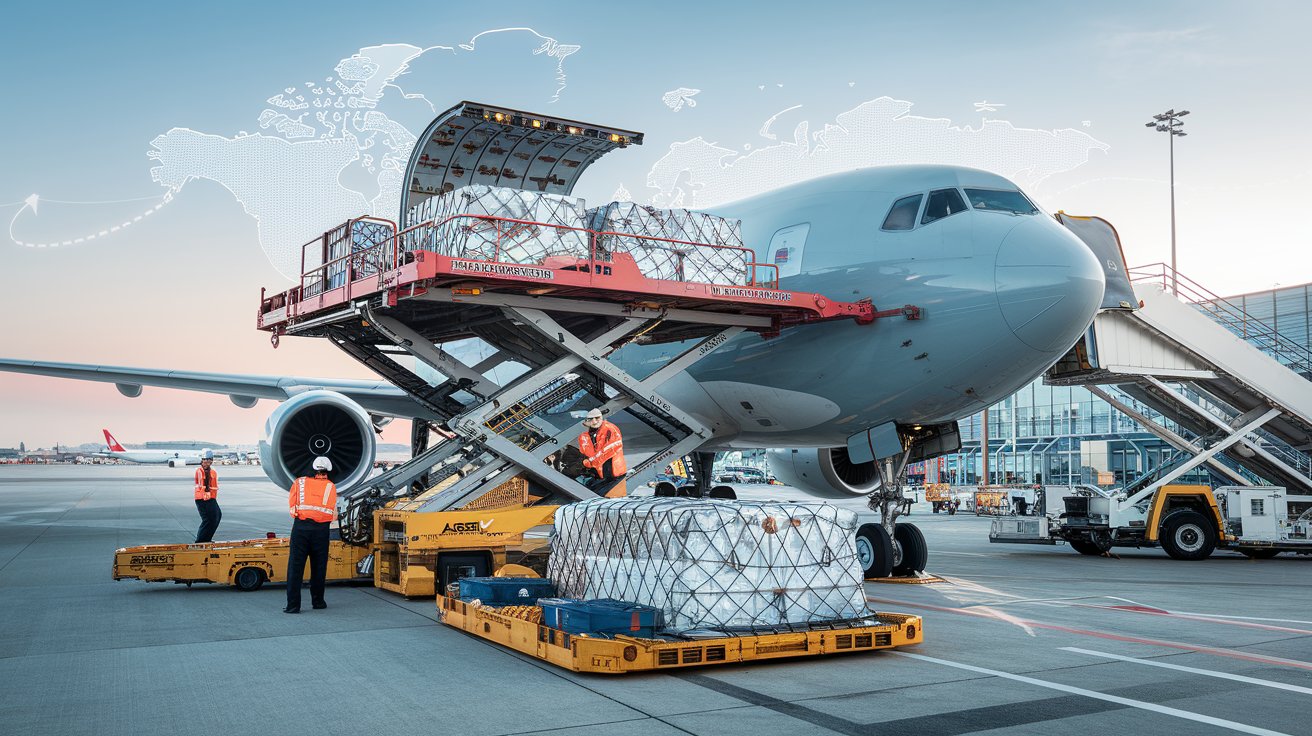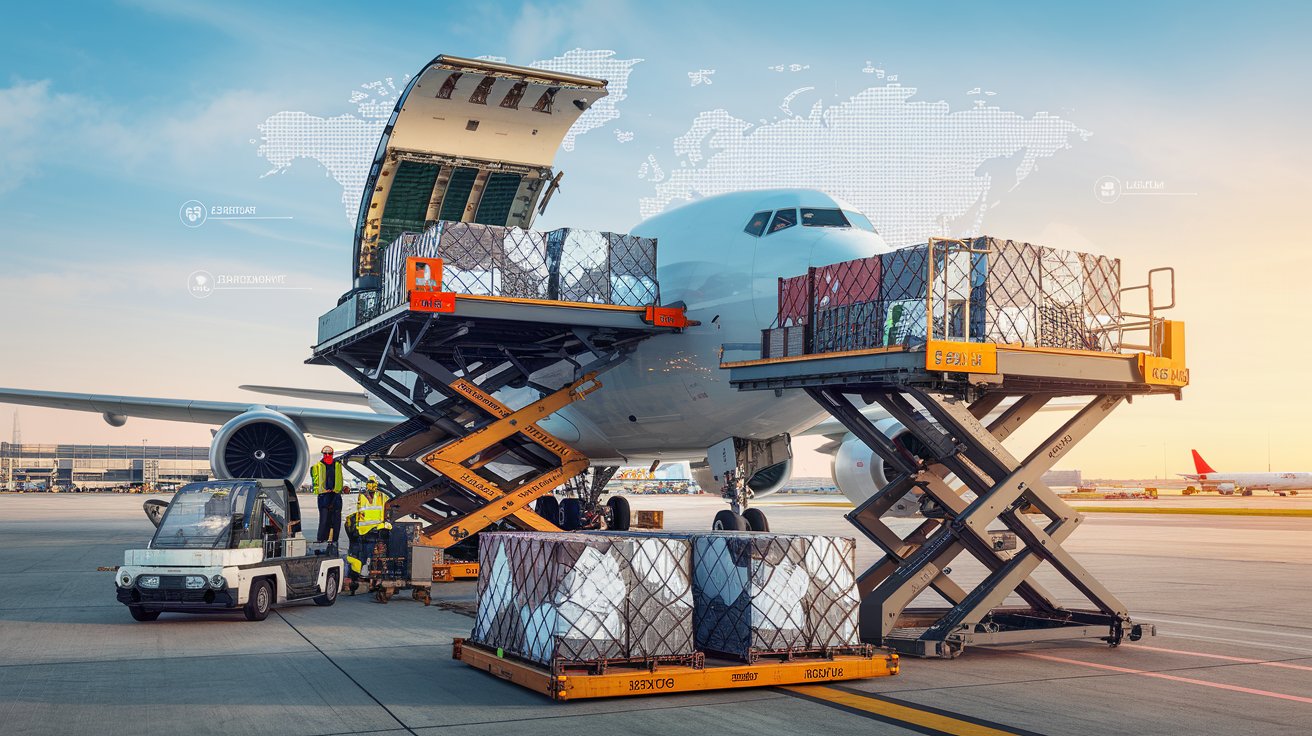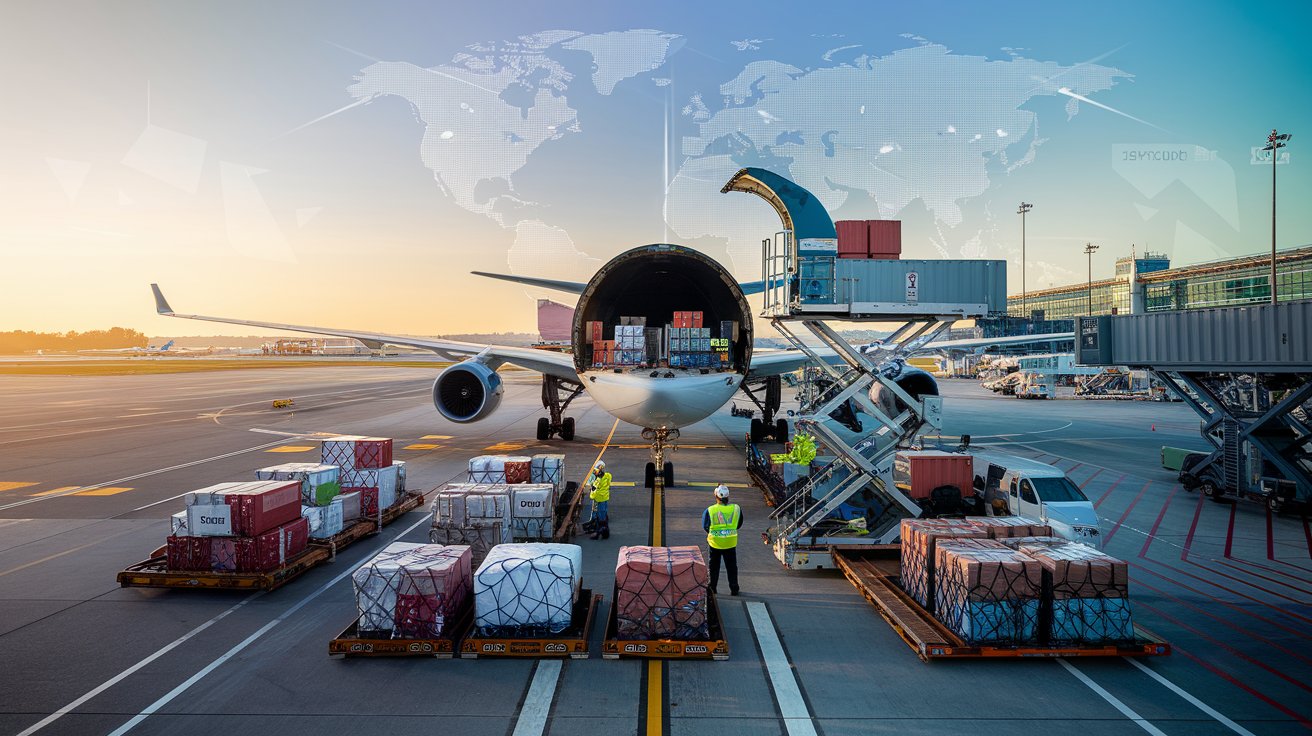Discover the world of air cargo service and their pivotal role in global trade. Learn about their benefits, types, logistics processes, and why businesses rely on air freight for efficient and secure transportation.
Air cargo services form the backbone of modern global trade, enabling swift and reliable transportation of goods across continents. From essential medical supplies to high-value electronics, air freight ensures that goods reach their destination in the shortest possible time. This article explores the intricacies of air cargo services, their benefits, the logistics involved, and their critical role in today’s economy.
What Are Air Cargo Services?
Air cargo services involve the transportation of goods and merchandise via aircraft. This can be done using dedicated cargo planes or in the cargo hold of passenger planes. These services cater to a wide range of industries, including manufacturing, retail, pharmaceuticals, and e-commerce, facilitating both domestic and international trade.
Benefits
 Speed: Air freight is the fastest mode of transportation, making it ideal for time-sensitive shipments such as perishable goods, urgent documents, or emergency medical supplies.
Speed: Air freight is the fastest mode of transportation, making it ideal for time-sensitive shipments such as perishable goods, urgent documents, or emergency medical supplies.
- Reliability: Airlines follow strict schedules, ensuring timely delivery. Advanced tracking systems also allow businesses to monitor their shipments in real-time.
- Global Reach: Air cargo service connect even the most remote locations, enabling businesses to expand their reach to global markets.
- Security: Airports and air freight companies maintain high security standards to protect shipments from theft or damage.
- Reduced Inventory Costs: Faster delivery times enable businesses to operate with reduced inventory levels, lowering storage costs.
Types of Air Cargo Service
- General Cargo: Includes goods that are not perishable or hazardous, such as electronics, clothing, and machinery.
- Perishable Cargo: Includes items that require temperature-controlled environments, such as fresh produce, flowers, and pharmaceuticals.
- Dangerous Goods: Includes items like chemicals, batteries, and flammable materials that require special handling and documentation.
- Valuable Cargo: Includes high-value items like jewelry, artwork, and luxury goods, requiring enhanced security measures.
- Live Animals: Transporting live animals, such as pets or livestock, demands special care and adherence to international regulations.
The Air Cargo Logistics Process
- Booking and Documentation:
- Businesses book space with an air cargo carrier and prepare necessary documents like the Air Waybill (AWB), invoices, and customs declarations.
- Packaging and Labeling:
- Goods are securely packed and labeled to comply with regulations and ensure safe transport.
- Transportation to the Airport:
- Freight forwarders or logistics companies transport the goods to the airport, ensuring timely delivery for loading.
- Customs Clearance:
- Shipments undergo customs checks at both the origin and destination to ensure compliance with regulations.
- Loading and Air Transport:
- Goods are loaded onto the aircraft and flown to their destination.
- Unloading and Delivery:
- Upon arrival, shipments are unloaded, cleared through customs, and delivered to the final recipient.
 ,#CargoLogistics,#GlobalTradeChallenges in Air Cargo Service
,#CargoLogistics,#GlobalTradeChallenges in Air Cargo Service
- High Costs:
- Air freight is more expensive than other modes of transport, making it less suitable for low-value or bulk goods.
- Regulatory Compliance:
- Adhering to international regulations, such as IATA standards, can be complex and time-consuming.
- Limited Capacity:
- Aircraft have limited space, and cargo weight restrictions can impact the type and quantity of goods transported.
- Environmental Concerns:
- The aviation industry’s carbon footprint has raised concerns, pushing for sustainable practices in air freight.
Technological Advancements in Air Cargo
- Digital Tracking Systems:
- Real-time tracking provides transparency and enhances customer satisfaction.
- Automation:
- Automated processes, such as cargo handling and documentation, reduce errors and improve efficiency.
- AI and Data Analytics:
- Artificial Intelligence and analytics optimize routes, reduce costs, and predict demand trends.
- Sustainability Initiatives:
- The use of biofuels, lightweight aircraft materials, and carbon offset programs aim to reduce the environmental impact of air cargo services.
 Key Players in the Air Cargo Industry
Key Players in the Air Cargo Industry
- Airlines:
- Major airlines like FedEx, UPS, DHL, and Emirates Sky Cargo dominate the air freight market.
- Freight Forwarders:
- Companies like Kuehne + Nagel and DB Schenker act as intermediaries, coordinating logistics and transportation.
- Airports:
- Large airports with advanced cargo facilities, such as Hong Kong International Airport and Memphis International Airport, serve as global cargo hubs.
- Technology Providers:
- Companies offering tracking, analytics, and automation solutions enhance the efficiency of air cargo operations.
The Future of Cargo Service
- E-Commerce Growth:
- The rise of online shopping has increased demand for fast and reliable air freight solutions.
- Sustainability Goals:
- The industry is investing in greener technologies to address environmental concerns.
- Expansion in Emerging Markets:
- Regions like Asia-Pacific and Africa are experiencing growth in air cargo demand, driven by economic development and trade.
- Innovative Aircraft Designs:
- Future aircraft designs, including drones and electric planes, promise to revolutionize air cargo services.
Conclusion
Air cargo services are indispensable in today’s interconnected world, providing unmatched speed and reliability for global trade. Despite challenges like cost and environmental concerns, advancements in technology and sustainable practices are paving the way for a promising future. By understanding the dynamics of air cargo logistic, businesses can leverage these services to optimize their supply chains and remain competitive in the global market.
 The Random Collective Where Curiosity Meets Creativity
The Random Collective Where Curiosity Meets Creativity






